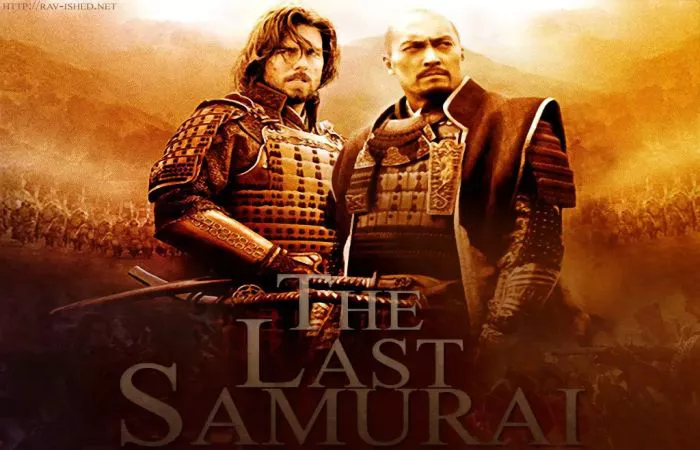Introduction
“The Last Samurai,” directed by Edward Zwick and released in 2003, is a historical drama film set in Japan during the late 19th century. Starring Tom Cruise in the lead role, the film explores themes of honor, loyalty, and cultural identity against the backdrop of Japan’s rapid modernization and the decline of the samurai tradition.
Plot Summary
The story follows Captain Nathan Algren (Tom Cruise), a disillusioned American Civil War veteran who is hired by the Japanese government to train its military forces and suppress a rebellion against the imperial regime. Algren’s perspective changes when he is captured by samurai warriors led by Katsumoto (Ken Watanabe), who embody the traditional bushido code and values.
Immersed in the samurai way of life, Algren begins to question his allegiances and finds himself drawn to the samurai cause. As he learns about their customs and philosophy, he becomes torn between his duty to the emperor and his admiration for the samurai’s dedication to honor and integrity.
Themes and Symbolism
Honor and Tradition
At the heart of “The Last Samurai” is the theme of honor and the clash between traditional values and modernization. The samurai represent a proud warrior class committed to upholding honor and loyalty, even in the face of societal changes that threaten their way of life. The film explores the cost of abandoning tradition in pursuit of progress.
Cultural Identity
The film delves into the notion of cultural identity, both for the samurai struggling to preserve their heritage and for Algren, who grapples with his place in a foreign land. As Algren learns from Katsumoto and embraces aspects of samurai culture, he undergoes a transformation that challenges his preconceptions and leads him to question his own identity.
Redemption and Sacrifice
Algren’s journey toward redemption is a central theme of the film. Haunted by guilt over his past actions, he finds a sense of purpose and redemption through his experiences with the samurai. The concept of sacrifice is also prominent, as characters must make choices that test their convictions and values.
Cinematic Elements
Direction and Cinematography
Edward Zwick’s direction brings a visual richness to the film, capturing the lush landscapes of Japan and the intensity of battle sequences. The cinematography by John Toll emphasizes the contrast between the serene beauty of the countryside and the brutality of war.
Score and Sound Design
Hans Zimmer’s evocative score complements the film’s emotional depth, enhancing key moments with stirring melodies and traditional Japanese instrumentation. The sound design immerses viewers in the world of the samurai, from the clashing of swords to the tranquility of nature.
Acting Performances
Tom Cruise delivers a compelling performance as Nathan Algren, conveying a range of emotions from disillusionment to introspection. Ken Watanabe shines as Katsumoto, imbuing the character with wisdom and gravitas. The supporting cast, including actors like Billy Connolly and Tony Goldwyn, contributes to the film’s authenticity and emotional impact.
Critical Reception and Legacy
“The Last Samurai” received generally positive reviews from critics and audiences alike, praising its performances, cinematography, and thematic depth. While some critics noted historical inaccuracies and clichés, the film’s exploration of honor and cultural identity resonated with many viewers.
Over time, “The Last Samurai” has become a notable entry in the samurai genre, inspiring discussions about tradition, honor, and the impact of globalization on indigenous cultures. Its themes continue to resonate with audiences, making it a memorable and thought-provoking cinematic experience.
Conclusion
In conclusion, “The Last Samurai” is a captivating historical drama that explores profound themes through its compelling narrative, strong performances, and stunning visuals. Edward Zwick’s direction and Tom Cruise’s portrayal of Captain Nathan Algren elevate the film, offering viewers a poignant reflection on tradition, honor, and the complexities of cultural identity. Despite its fictional elements, the film’s themes remain relevant, encouraging audiences to contemplate the enduring value of honor and the importance of preserving cultural heritage in a rapidly changing world.
Related Topics:
Exploring the Deeper Meaning of “Wolf Warrior 2”

